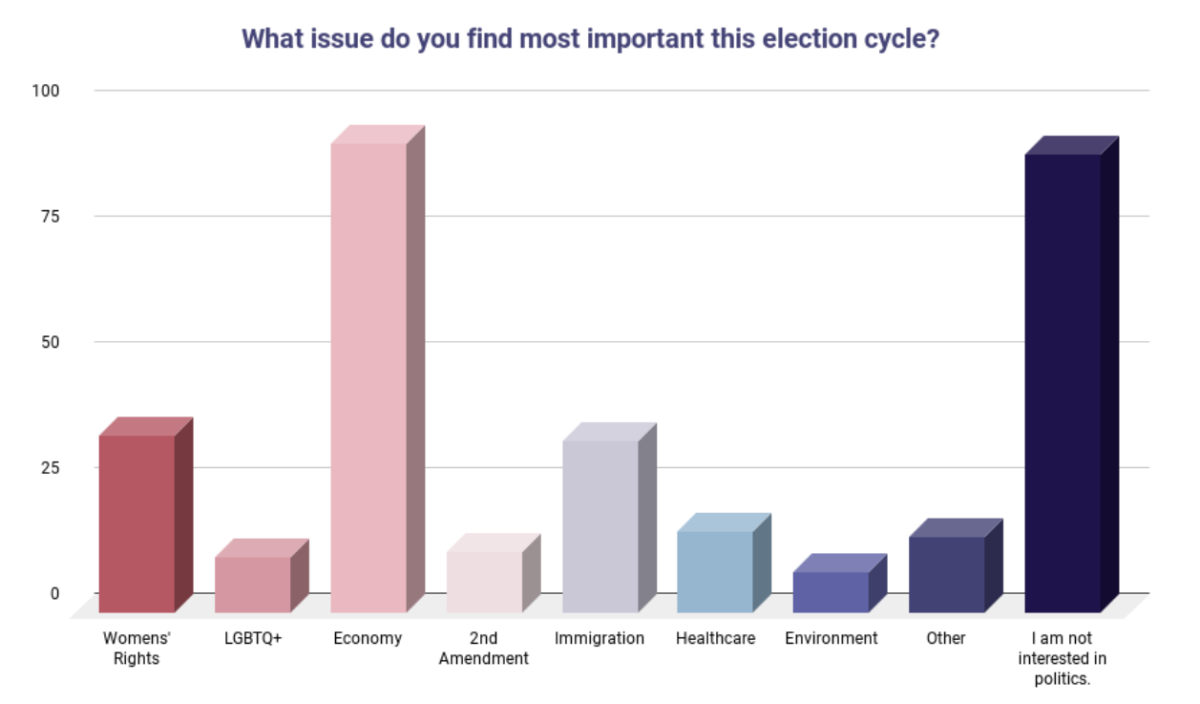On Jun. 26, Rebecca Landry locked herself in her office at work, turned up the volume on her computer and watched history in the making. She was live streaming the Supreme Court ruling on gay marriage, and when news broke that the ruling had legalized these ceremonies across the nation, all she could do was cry. While many rejoiced around the country, this ruling hit particularly close to home for Rebecca. After twelve long years, she would finally be able to marry her partner, Amanda Wedepohl.
“All I could sit there and say was ‘Thank God,’ because it had been such a long hard road for so many people,” Rebecca said.
Across town, Rebecca’s daughter, Lizzie was getting picked up from work by some friends who excitedly filled Lizzie in on the Supreme Court decision, and she too found it difficult to maintain dry eyes. Without hesitation, she drove straight to Best Buy, where Amanda works, and jumped into the embrace of the woman who she had forever considered the other parent in her life.
“For someone who had been there for so long in my life and had taken care of me for as long as she did, through sickness, through happiness and everything in general, [I was] just so happy to finally be able to see two people that love each other are able to marry one another,” Lizzie said.
* * *
The drop-off line at Rockbrook Elementary was packed with the before school rush of parents and children. Rebecca watched as a Caucasian lesbian couple were in the process of dropping off their African American son. She noticed several of the other parents cast venomous glares at what she had thought of as a beautiful family.
“I saw the nasty looks that parents gave them, the weird looks that kids gave that family because their parents portrayed that to them, so we never made it obvious with Elizabeth,” Rebecca said.
Rebecca and Amanda knew all too well the general nature of people’s reactions to their relationship from the beginning. Because of these and other incidents, they did their best to protect their daughter from the world’s prejudices.
“It wasn’t that we hid it, we just we weren’t going to subject our daughter to that,” Rebecca said. “We got enough of it on our own, we didn’t need her to have it.”
As she got older, Lizzie seemed to pick up on the reality of people’s opinions. When she reached middle school, she asked her parents how to address her family with her friends. Coming from Catholic Louisiana, the couple’s families both had members that were opposed to the relationship. For the first couple of years, Rebecca wasn’t even allowed to bring Amanda through the front door. Since they had seen first hand how vicious people could be to them, the couple decided to allow Lizzie to choose when and who she would tell about their relationship. Fearing she would be picked on, Lizzie’s initial reaction was to keep it to herself. However, when she finally decided to let her closest friends know about her two moms, she was pleasantly surprised.
“I think that when I was more willing to open up about it, it wasn’t really a bad thing,” Lizzie said. “People were just kind of like, ‘Oh, okay. That’s cool.’”
According to Lizzie, the general acceptance she has received recently has not always been the case. With the recent increase in LGBT media representation she says more of society seems to be accepting of relationship like her moms’. Despite the occasional derogatory comment she has received, Lizzie says she tries to not take anything too personally.
“All I can do is try to help you better understand my point of view and I’ll try to understand yours,” Lizzie said. “I’m not going to tell you to think a different way, but if that’s how you want to think, then that’s how you want to think.”
While their work schedules haven’t allowed them to physically rally support for this decision, the couple participated in several online petitions and emails over the past few years to get the attention of legislators. However, according to Rebecca, this is just the first step of many for the LGBT community.
“We are still not a protected class, so I would say to people, read up on everything,” Rebecca said. “We’ve won one battle, but we didn’t win all battles.”
* * *
“But why don’t you get married?” a ten year old Lizzie whined.
“Baby, I told you, it’s not legal,” Rebecca said. Frustrated, Lizzie crossed her arms and frowned.
“I don’t care,” she declared. “You’re my parents and I want you to get married.”
Since she had discovered her parents’ relationship, she had begged them to get married. It seemed only natural to her that these two people that loved each other and loved her should be able to get married officially.
“Knowing that it’s legal, like absolutely legal, is amazing because now my parents can walk outside holding hands and not feel ashamed of it, or they can put their arms around one another as they’re walking through the store,” Lizzie said. “It makes me happy knowing that they feel more comfortable doing that.”
Now, the couple plans on fulfilling their daughter’s and their own wishes. Though no date is officially set yet, they hope to have the ceremony in about a year’s time. The wedding is in good hands, however, because Lizzie plans on orchestrating the whole day.
For Rebecca, the ceremony is significant because now the law will recognize the familial bonds that they have built for over a decade. She is relieved to be able to have all the legal backing of marriage, such as making decisions for Amanda if she is hospitalized, without fear of a court blocking her from doing so. Overall, however, she’s just grateful for the opportunity to share this long overdue day with her family.
“I get to marry the person who has been by my side through family issues, through deaths in the family, through all the happy times, the sad times, the really bad times, and through a hurricane that tore everything apart,” Rebecca said. “I can’t wait to stand by that person and say ‘Yes, I do.’”






